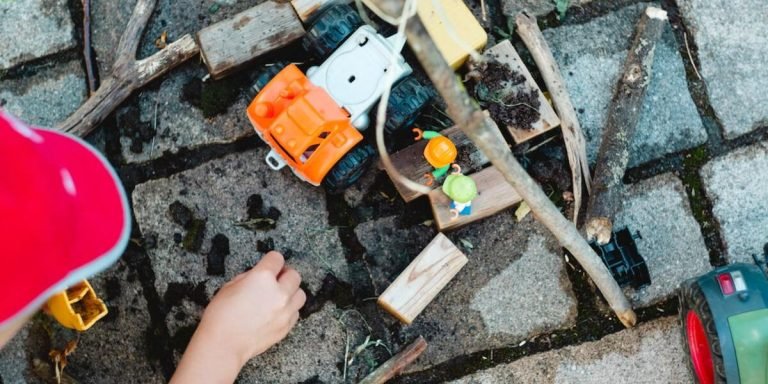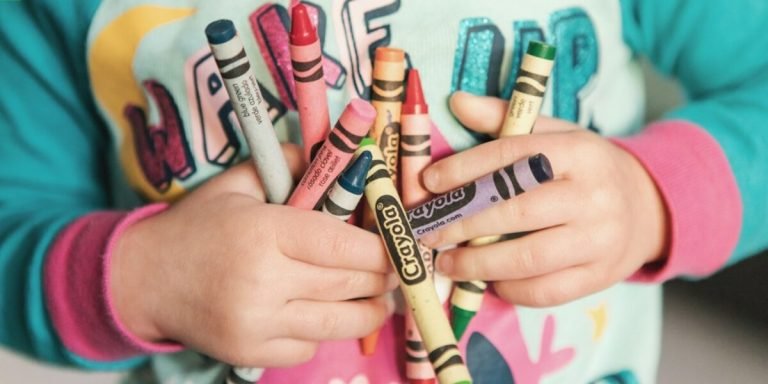Homework for Kindergarten: Inspiring a Love of Learning Early On
Instilling a love of learning in children from an early age is one of the key steps towards their lifelong academic success. When it comes to homework for kindergarten, this process can be fun and exciting rather than dull or pressurizing. The primary goal at this stage should not be about just completion but inspiring curiosity and fostering independent thinking.
Homework for kindergarteners shouldn’t feel like a strict duty; instead, it should stimulate young minds by giving them engaging activities that promote problem-solving skills and creative expression. This initial stage sets the foundation upon which further education will build on – thus making ‘homework’ more meaningful while occasionally challenging boundaries with appropriate guidance from parents and educators.
Did you know?
Did you know that according to a study conducted by the University of Michigan, kindergarteners today are spending as much time on homework as third graders did in the 1990s? It emphasized more on play-based learning than sheet-based homework.
Understanding the Role of Homework in Early Childhood Education
In the realm of early childhood education, homework serves as a critical tool in fostering learning and engaging young minds. Contrary to popular belief, homework for kindergarteners is not just an extension of classroom work but rather enhances their understanding by providing hands-on experience within their comfort zones – home. It introduces them gradually to the discipline required in formal educational settings and helps set routines.
However, merely assigning worksheets would be an inadequate approach considering we are living in a technologically advanced era that is 2023. Technology integration brings forth new facets to kindergarten homework which can make it more interactive, enjoyable yet beneficial at its core purpose – reinforcing what was taught during school time.
The idea isn’t about substituting paper-pencil tasks with digital counterparts; instead, using technology effectively can create diverse learning opportunities for kids. For instance, parents could leverage apps designed specifically for kindergarteners where they learn phonetics or simple mathematics while playing games on tablets or smartphones. Such applications often provide immediate feedback—an aspect key—instilling confidence among these little learners.
By incorporating elements such as images and sounds into assignments through various tools like virtual reality (VR) platforms , augmented reality(AR), tech-integrated instruction becomes far more attractive than traditional methods. Undoubtedly this holds potential to develop primary skills including comprehension abilities alongside exposure to harnessing modern-day resources from very formative years without overwhelming them.
The Purpose and Benefits of Assigning Homework to Kindergarteners
In a rapidly evolving world, the role of homework in early childhood education has significantly changed. Particularly for kindergarteners, it’s imperative to understand how homework can aid their educational journey.
Homework for kindergarten serves several key purposes. Firstly, it acts as a bridge connecting the school environment with home life. It gives parents an insight into what children are learning and enables them to support their child’s progress constructively.
Secondly, while technology integration in education is now front and center stage thanks to advancements made towards 2023; assigning simple yet meaningful tasks allows young learners to develop basic tech skills. Kids become aware of digital resources like e-books or online libraries under guided supervision which encourages safe use of such mediums from an early age.
Thirdly,the regularity and routine that comes with completing small assignments fosters responsibility among these tiny students – they learn about setting aside time each day specifically dedicated towards accomplishing academic goals indicating discipline instilled at initial stages itself.
Moreover,research suggests that when pupils have something concrete prepared at home related directly back to classroom content,it reinforces retention cementing concept understanding more effectively.Additionally,a good mix of practical activities coupled alongside computer-enabled instruction maximizes holistic development balancing between screen-time exposure too.
Best Practices for Developing Appropriate Homework for Young Learners
As the landscape of early childhood education evolves, so does the approach to homework for kindergarten students. In light of recent advancements in technology integration within education platforms, parents and educators must rethink traditional schooling methods.
1. Purposeful assignments: Homework should serve a clearly defined purpose that aligns with classroom learning objectives and educational standards. The use of interactive applications can help transform mundane tasks into engaging activities while reinforcing important concepts taught at school earlier during their day.
2. Balanced workload: It’s essential to maintain a balanced workload when it comes to assigning homework for kindergarteners as their attention span is relatively limited compared to older children. Technology-based games or puzzles could be used effectively here – allowing young learners time-limited exercises which are stimulating without being overwhelming.
3. Tangible connection: Making real-life connections helps kids understand abstract ideas better than purely theoretical knowledge would allow them especially at this tender age where experiential understanding trumps rote memorization hands down! For example, using virtual reality tools or other tech-related resources such as science apps may demonstrate simple scientific phenomena through hands-on experiments versus textbook readings alone.
4.Tailored content: Evidence points out how personalized learning strategies have been gaining popularity thanks largely due innovation in edtech products providing custom features catering specially towards individual student’s specific needs thereby enhancing academic comprehension more efficiently than one-size-fits all curriculum models necessarily might offer otherwise!
Crafting Effective and Engaging Kindergarten Homework Activities
In the realm of early childhood education, assigning homework for kindergarten has undergone a significant transformation. With technology playing an instrumental role in elevating the learning experience, crafting effective and engaging assignments is no longer dominated by pen-and-paper tasks.
Harnessing digital tools allows educators to create interactive activities that are both stimulating and educational. Early learners react positively when their assigned tasks integrate fun elements with academics – making lessons feel less like work but more play-oriented. Today’s kindergarteners expect and deserve dynamic learning experiences that foster creativity while simultaneously building foundational skills such as reading comprehension or basic arithmetic.
Technology integration also extends parental involvement in children’s academic journey—a critical aspect of successful homework completion at this stage—as parents can view assignment guidelines, track progress and offer assistance when necessary via online channels ensuring smoother communication between home and school environments amidst busy schedules. Overcoming traditional barriers to parent-teacher interactions greatly enhances student engagement in their own learning process—making mastering new concepts fascinating rather than burdensome.
Moreover, these innovative methods help align curriculum objectives with students’ distinct abilities better by offering personalized options from audio books promoting literacy development to mobile applications facilitating simple mathematical problem solving exercises—all within one platform easily accessible through a mere click on any device thus creating inclusive spaces suitable for all skill levels thereby reducing undue stress associated with conventional teaching methodologies including rote memorization which younger learners find specifically challenging.
Strategies for Designing Creative Tasks That Enhance Learning at Home
As more and younger learners are introduced to digital platforms, creatively strategizing homework for kindergarten that enhances learning at home becomes critical. While traditional methods still hold value, integrating technology in crafting these tasks can provide a new level of interactivity and engagement.
First off, focus on making the tasks fun and engaging by incorporating tech tools already familiar with kindergartners. Tablets or smartphones loaded with educational apps help to create an atmosphere where children feel they’re playing while learning essential concepts.
To encourage problem-solving skills early on, consider including interactive puzzles within your assignments that demand logical thinking from students. Websites like ABCmouse.com offer resources designed specifically for this age group which blend seamlessly into their homework schedule.
Do not worry if coding seems overwhelming; there indeed are user-friendly software solutions out there that simplify animation creation aimed towards youngsters under eight years old- Tynker being one popular choice among educators globally!
Incorporating Play-Based Learning Into Kindergarten Homework Assignments
In the modern landscape of early childhood education, integrating play-based learning in homework for kindergarten has never been more critical. Incorporating playful elements can magnify a child’s interest and participation while reinforcing academic concepts effortlessly.
The first step is to recognize that children learn best through structured yet enjoyable experiences. Every activity should be designed with the idea that it’s both fun and educational at the same time. For instance, number games or alphabet puzzles are excellent tools to engage young minds whilst fostering their cognitive abilities.
Embrace technology as an enabler; many interactive applications focus on guiding kindergartners through different subjects using game-like interfaces — everything from basic mathematics & science to English language skills can be covered with these apps. The key advantage here lies in personalized learning paths which adapt based on each individual kid’s progress, successfully making ‘homework’ a less daunting prospect.
To sum up: Kindergarten homework shouldn’t feel burdensome for youngsters but instead serve as an extension of entertaining practical experiences they’ve encountered throughout day-to-day life enriched by guided digital means where appropriate too!
Fostering Parental Involvement in Early Childhood Academic Growth
In the modern day education scenario, particularly in early childhood academic growth settings like kindergarten, a significant part of learning extends beyond school boundaries. Parents and guardians are playing an increasingly active role in their child’s educational journey. This evolution has been amplified by technology integration into education systems.
Technology offers various tools to engage parents efficiently and effectively in their children’s education. Apps for homework sharing have emerged on multiple platforms. Teachers assign tasks to students and let parents see these assignments, fostering parental involvement.
Regarding “homework for kindergarten,” digital platforms provide interactive games. These games help children grasp concepts better and turn into enjoyable experiences for families during supervised screen time.
Additionally, communication apps facilitate ongoing parent-teacher dialogue about daily activities or specific concerns related to their child’s performance or behavior at school ensuring everyone remains on the same page regarding each student’s progress.
Emails and newsletters containing guidance tips related to tailored home-based engagement strategies empower caretakers further when encouraging young minds towards learning outside classrooms; reinforcing habits fostered through structured pedagogy as opposed to random unstructured playtime alone.
Encouraging Positive Parent-Child Interactions Through Homework Help
Fostering parental involvement during the early years of a child’s academic journey is pivotal. It lays the foundation for future learning experiences and helps in building resilience, curiosity, and cognitive abilities. One such important aspect that brings both education and parenting together is “homework”.
While homework for kindergarten may appear simple or even redundant to some parents, it plays an imperative role.
Homework serves as an effective platform where young learners can reinforce critical skills taught at school under your guidance thus encouraging positive parent-child interactions. Homework time should also be viewed as quality bonding time between you and your child rather than mere obligations.
Firstly, ensure that you’re making this practice technology-friendly yet personal by introducing digital resources like educational applications but also keeping one-on-one reading sessions intact.
Thirdly help establish routines with specific timings dedicated each day specifically for accomplishing tasks given from school thereby instilling discipline right from the start.
Tools and Resources to Support Parents with At-Home Educational Activities
As we navigate the evolving realm of early childhood education in 2023, one thing remains certain: parental involvement plays a crucial role in a child’s academic development. With this understanding, let us delve into some tools and resources that can support parents with at-home educational activities.
Firstly, it’s critical to appreciate that technology has become an integral part of our lives including the children’s education sector. When used correctly and efficiently, technology can be remarkably beneficial for homework tasks even as soon as kindergarten age.
PBS Kids Games also stands out when searching for constructive edtech tools aimed towards kindergarteners offering stimulating video content along educational lines like science or basic maths concepts.
Remember though! While these technological aids are extraordinarily useful supporting elements fostering healthy studying habits among youngsters, nothing replaces human connection between parent-child relationship nurturing emotional growth aside intellectual aspects equally important throughout individuals entire life span.
Conclusion
In establishing a strong foundation of learning, allowing your tiny tots to have positive engagement with homework for kindergarten is indeed integral. Being patient and creatively inclined helps in fostering not just their academic growth, but also shapes them as future independent thinkers.
We hope you’ve found this article illuminating and beneficial towards your early education endeavors. Feel free to explore more on our website where we provide valuable insights into children’s education along with support for parents and educators alike! Let us take hand-in-hand responsibility in nurturing the profound potential that each child beholds because every step taken today will echo throughout their tomorrow.







